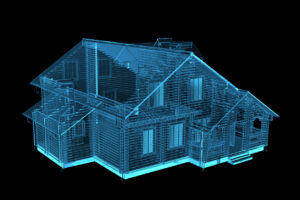What you should expect from your expert. From Rapid Response to Trial Testimony.
When you call your expert, or the person who manages inquiries and conducts conflict checks for the expert witness company, you probably have certain expectations of that expert and or the company that employs the expert. This newsletter discusses what CED thinks is important to you, whether it be a call for rapid incident response or the need for expert witness testimony. We believe the entire process is connected and no matter how far the claim actually goes, trial testimony is the endgame and requires a level of professionalism that you should expect from your expert.
First and foremost, your expert must have credentials that may be documented by specific experience or expertise with the technical issues of your claim/ lawsuit. Credentials are typically qualified in the courtroom by possession of a professional engineer’s license (P.E.). Additionally, certifications such as accident reconstructionist, certified fire & explosion investigator, and OSHA training certainly complement the credibility of the expert.
Next, you should expect a certain level of intellectual curiosity from your expert. This trait is not part of the diploma that comes with an engineering degree. Retaining an expert who has that ‘peel back the onion’ and ‘follow the evidence’ mindset to uncover facts will help expedite your understanding of the technical merits of your case. Perhaps equally important, the expert must be prepared to do the investigation with the necessary tools to find detail and uncover evidence. Being prepared with a 3D scanner or even a ladder long enough to get on the roof that needs to be inspected are examples of the attention to detail you should expect from your expert. This is a good segway into another expectation – the expert should have a process or approach that is followed when conducting a forensic analysis. This process should complement the legal process and should consider how the expert and evidence play a part. Does your expert understand your needs as a claims adjuster or lawyer? Does your expert understand the timeline of the legal process and what is expected throughout that process?
Equally important, does your expert have business savvy to correlate the value of the claim/demand with the value the inspection, analysis, and report? If there is a dis-connect here, justification of payment for services may become an issue. Does your expert know that good news/findings certainly help a case, but bad news could be equally important -so that the claim/case can be managed in a cost effect manner? Communication skills are critical for the expert. The expert must be able to speak in layman’s terms to effectively communicate the opinion, both orally and written in the form of a report. Is the report peer reviewed? Quality control should be a priority.
Finally, is your expert trial ready? Most claims don’t go to trial, but we believe you want your expert to not only be credentialed but be ready should your case go all the way to a trial. An expert gets practice and experience through actual depositions and trials, but you want to know that the expert is prepared for your deposition or trial. Does the expert’s employer have a training program that prepares the expert for the rigors and challenges of the scrutiny of opposing counsel?
We at CED feel the above discussion captures many of the concerns you have when you consider hiring an engineering expert. We endeavor to manage your expectations and deliver, and hope that you will consider CED for your engineering assistance. Call us early for a free consultation – we may inspire you to a strategy for the claim/case and assist with the discovery plan.
Submit a case or claim online.
Contact a CED Engineer in you region.






